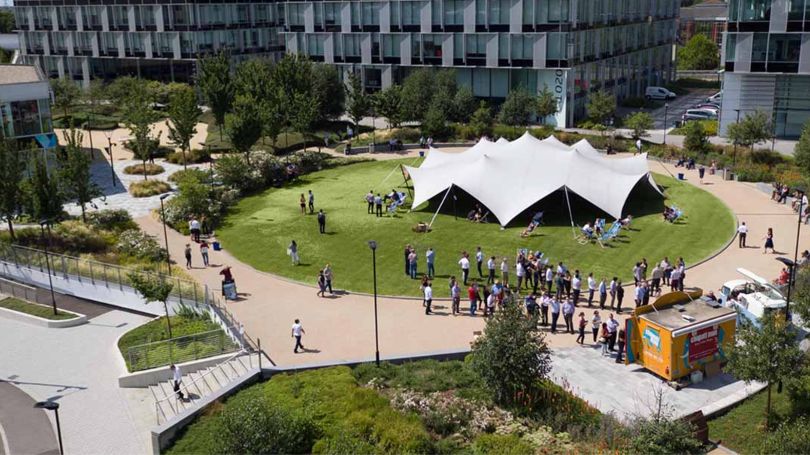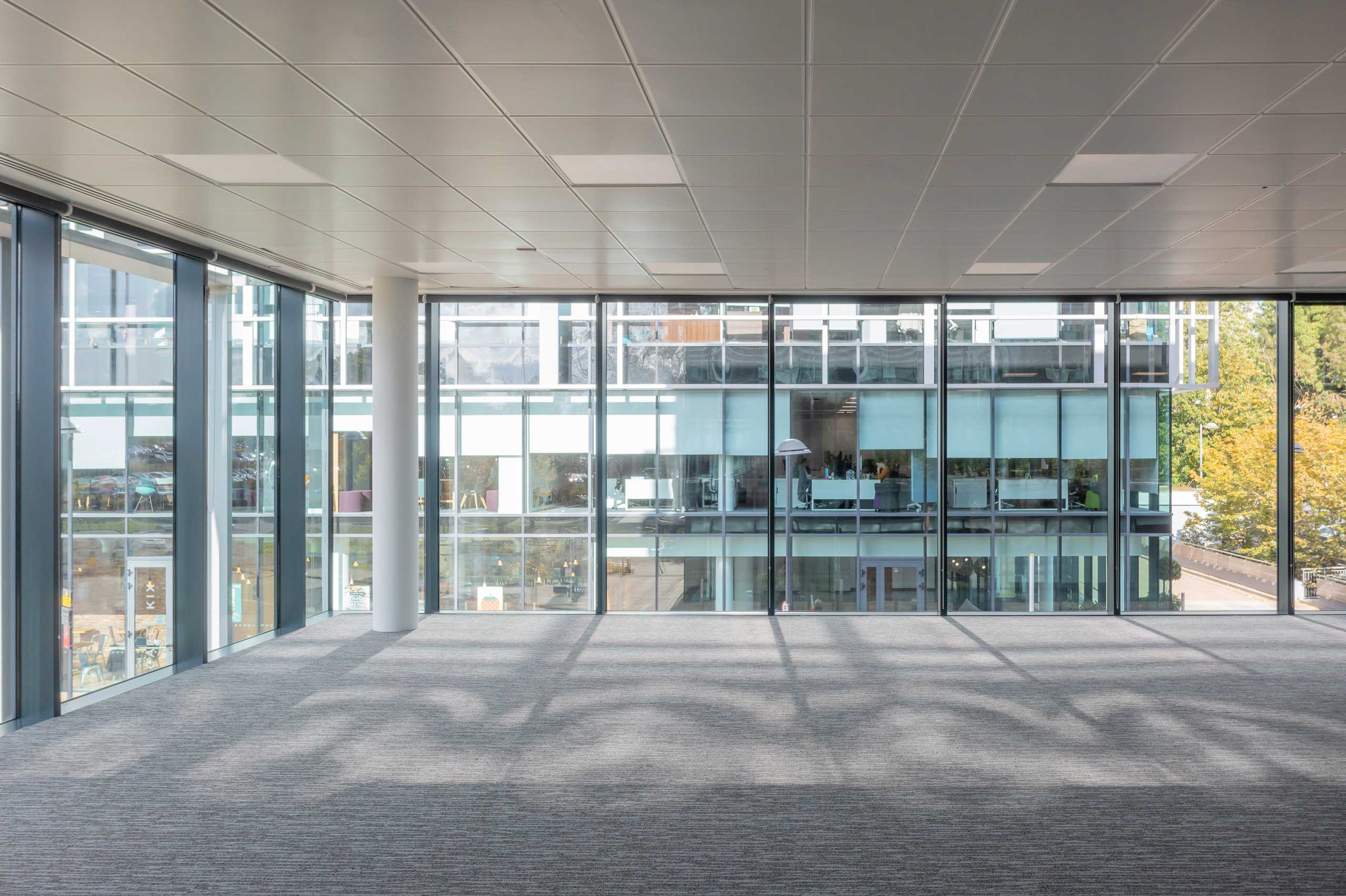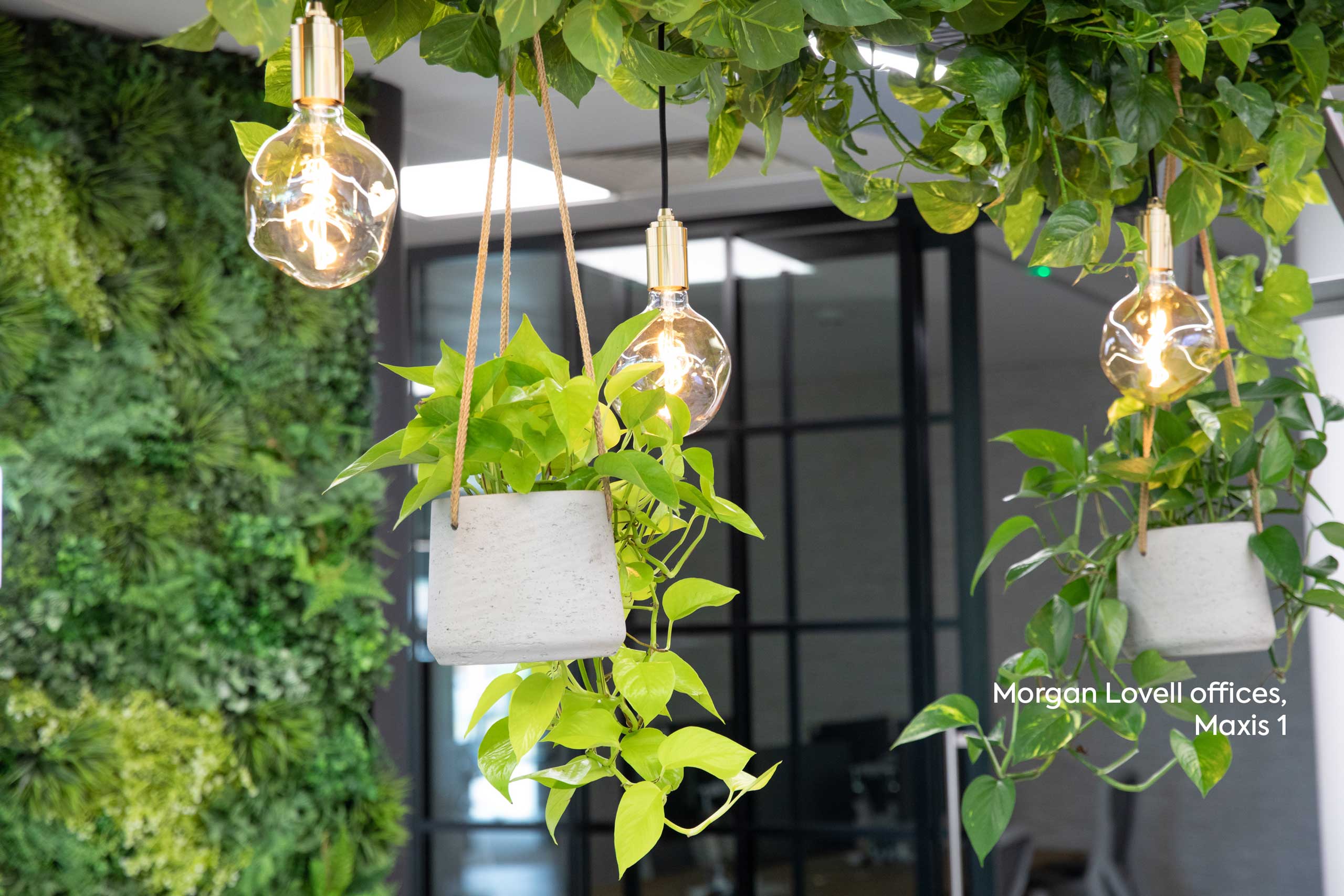In today’s rapidly changing business landscape, finding the right location to set up shop for an office is more than just a matter of pinning a spot on a map. It’s about positioning yourself for growth, networking, and accessing prime facilities that amplify your operations.
Enter business parks – ecosystems of innovation, collaboration, and opportunity. Whether you’re an entrepreneur eyeing your next office space, a corporate leader looking to expand, or simply someone curious about the buzz around business parks, you’ve landed in the right place.
Welcome to the ultimate guide to understanding business parks and how they could revolutionise your business journey. Let’s dive in!
What is a business park?
At its core, a business park is a space where several businesses co-locate. This could be a dedicated area within a city or an expanse in a suburban locale that houses multiple companies in separate buildings or as a conglomerate in one large structure.
So, why the term ‘park’? Much like a nature park is an expanse of green space dedicated to recreation and relaxation, a business park is an expanse of infrastructure dedicated to fostering business growth. It presents an environment tailored to the needs of modern businesses, just as recreational parks are tailored to the needs of individuals seeking respite.
What is the function of a business park?
Business parks offer more than just office spaces. Let’s take a deeper dive using the example of Maxis. The amenities at Maxis Bracknell are designed to ensure businesses can operate at peak efficiency. Consider amenities like dedicated high-speed internet, spacious conference rooms, in-house eateries, fitness centres, and ample parking.
But that’s not all; a business park is also a hub for community. Frasers business parks, for instance, often host community events that foster networking and collaboration. Such events include business expos where companies can display their products, entrepreneurial seminars, festive gatherings, or even casual Friday evening mixers.
Types of business parks
There’s no one-size-fits-all in the world of business parks. Their type usually depends on the businesses they cater to:
- Industrial business parks: These parks mainly cater to manufacturing and distribution businesses. They provide spaces that can be used for factories, warehouses, and the like.
- Office parks: Predominantly seen in urban and suburban areas, they are clusters of office buildings that may house corporate offices, IT firms, and other service-based businesses.
- Technology and science parks: These parks are typically linked to higher learning and research institutions. They serve as hubs for startups, research institutions, and tech companies. Their focus is on fostering innovation and collaboration in technology and science.
The difference between an industrial park and a business park
While the terms might sometimes be used interchangeably, they have distinct differences. An industrial park primarily focuses on the manufacturing side of business operations, including factories, warehouses, and distribution centres. These parks prioritise functional designs that can handle heavy machinery and logistical operations.
On the other hand, a business park is a broader term. It can encompass various types of businesses, including those in industrial parks. However, business parks can also include office spaces, tech hubs, and other non-manufacturing entities. They’re designed with versatility in mind and often prioritise aesthetics and community-building amenities.
The difference between a science park and a business park
A science park, or a research park, is a specialised business park. The main distinction is its close tie to academic and research institutions. While business parks cater to a broad range of businesses, science parks are zoned in on research, development, and innovation. They often house companies working on breakthrough technologies, pharmaceuticals, or other scientific endeavours.
Where are business parks usually located?
Business parks are typically situated in places that balance accessibility, infrastructure, and cost. A common feature is proximity to major transport routes—like highways, airports, and ports. This ensures that businesses within the park have the logistical advantage they need to operate seamlessly.
For instance, Maxis business park is strategically located to ensure easy accessibility for employees and any logistical operations. Often, these parks are situated either on the outskirts of major cities, where land is more available and costs are lower, or within urban locales with excellent connectivity to the heart of the city.
In essence, the location of a business park is carefully chosen to offer the best of both worlds: a conducive environment for business growth and seamless connectivity to vital points of interest.
Grade-A office space in the perfect working environment
Ultimately, business parks represent the future of how businesses coexist and thrive together. Whether you’re a business owner looking for the ideal space to set up shop or a professional hoping to work in a dynamic environment, business parks offer the infrastructure, community, and strategic location to foster growth and innovation.
Maxis is proud to be rated BREEAM ‘Excellent’, representing best practice for sustainability performance. At the end of 2022, we successfully installed 46,444 sq ft of solar PV at Maxis, saving 238 tonnes of CO2 per year, the equivalent of planting 10,914 trees. By the end of 2023, we aim for both buildings to be fully electric. To learn more, get in touch with us today.



